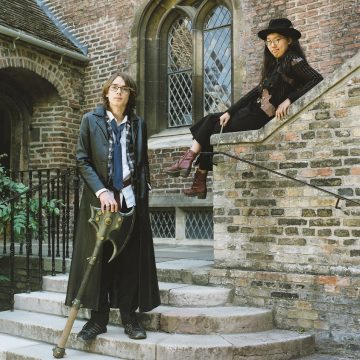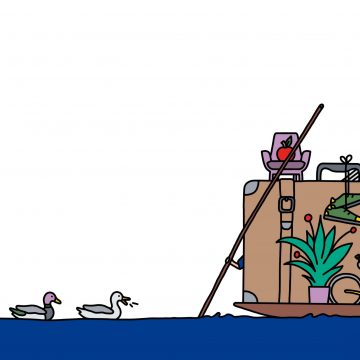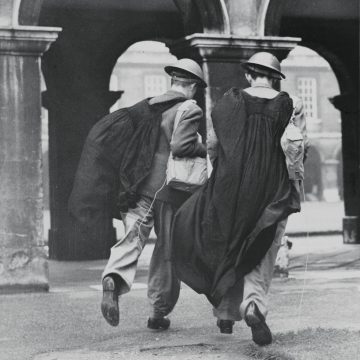If CAM could speak…
Over the past 30 years, CAM has had access to the most brilliant minds, latest innovations and incredible places in Cambridge. As we publish this, the 100th issue, we had to ask: what has CAM herself made of it all?
It’s not everyone who can boast that their birth was marked by an approving letter from His Royal Highness The Duke of Edinburgh, the late Prince Philip. And, to be fair, CAM has the grace to look a little coy when we bring it up. “If it had been up to one reader, I would never have been born at all,” she points out indignantly. “They told my former editor Peter Richards that I could only ever be a flash in the pan because ‘there soon won’t be anything left to write about.’” She raises an eyebrow. “Valuable as my readers’ opinions are, I think we can discount that one.”
CAM was born in November 1990, edited by Jonathan Gregson. He was followed by Peter Richards (Emmanuel 1970) and then the current incumbent, Mira Katbamna (Caius 1995). It was a forward-thinking move at a time when almost nobody in Britain knew what an alumni magazine was: indeed, in Spring 1992, the editor’s letter reported “some confusion among readers as to why the magazine is being sent”. Since then, CAM has grown apace, meeting the great, the good – and everyone in between. In 2010, she won the Robert Sibley Award and the CASE Grand Gold Medal for the best alumni magazine worldwide – the first time that these awards had been given to a magazine outside the US. She now has around 200,000 readers. So, what moments have stood out for CAM?
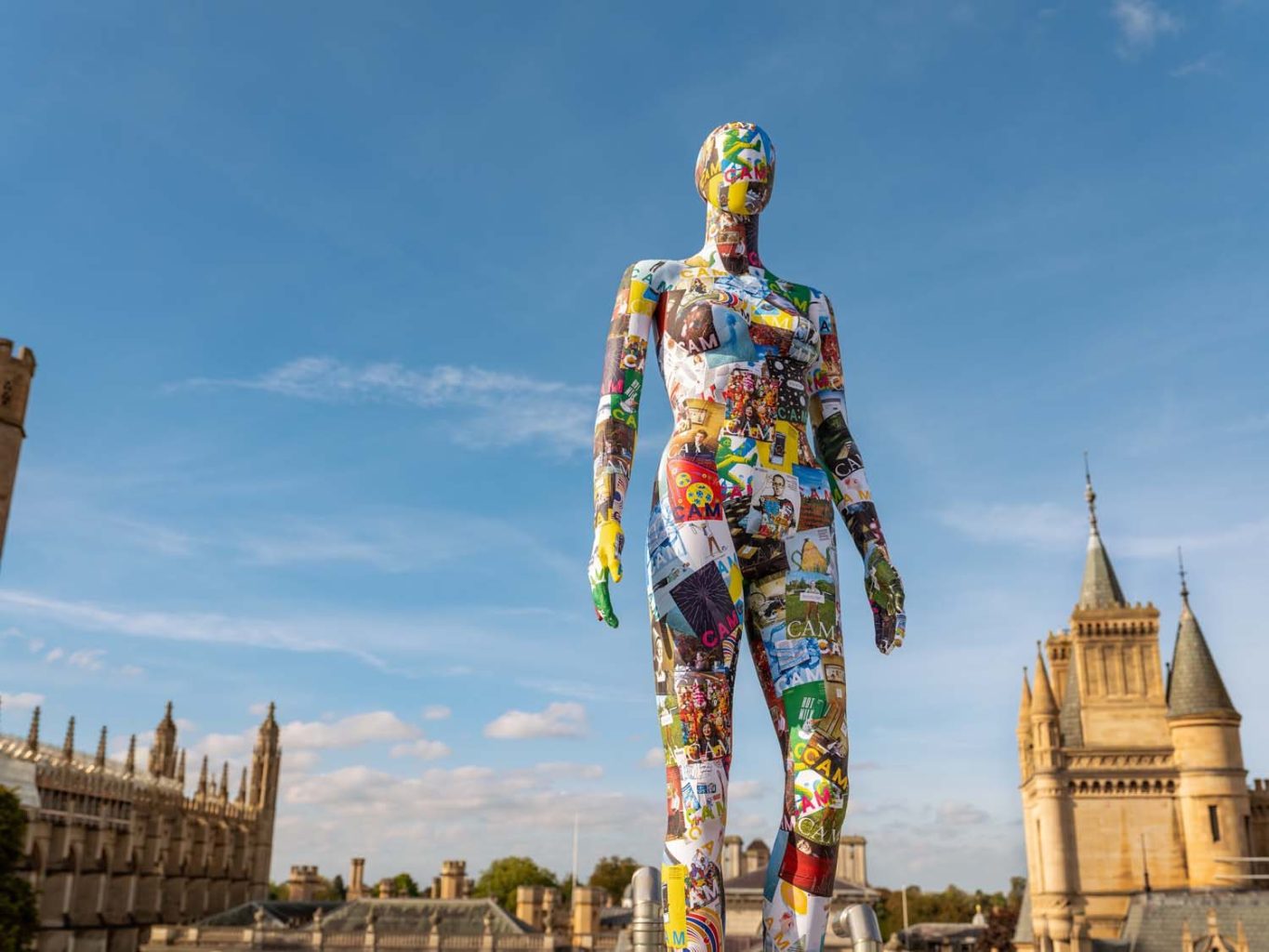
“Well, I could mention how lovely it was to chat with Baroness Hale of Richmond (Girton 1963), former President of the Supreme Court, about being one of just six undergraduate women studying Law, or listen to Katharine Whitehorn (Newnham 1947) recalling using scaffolding to escape from Clough Hall, or hear about the extraordinary success of Zhang Xin (Wolfson 1991), one of China’s richest women. But top of the list must be the desperately sad moment I heard Fitzbillies had ceased trading and the Chelsea buns were no more – and then the moment I heard it had been reborn, better than ever.”
Then there are the people she’s met. Where to start? Douglas Adams (St John’s 1971) raving about his top-of-the-range Power Macintosh 8100/100? Professor Stephen Hawking (Caius 1962) on his fears for the future of UK science research? Diane Abbott (Newnham 1973) on learning the nuances of political interaction from her student rep post on the History Faculty?
“It’s the variety I love,” she says. “One moment I’ve got Nobel Laureate Professor Amartya Sen (Trinity 1952) arguing that society, rather than military might, holds the key to peace. But, of course, I love to keep up with young talent, too, so chatting to DJ Vick Hope (Emmanuel 2007) and writer Okechukwu Nzelu (Girton 2007) about their time here was very enlightening. You should read him, by the way, if you haven’t already.
In 2006, Eric Johns (Fitzwilliam 1975) fulminated against the “feeble-minded” practice of highlighting quotes from an article in a larger font to draw attention. “One just reads the same thing twice,” he lamented
“I’ve had some lovely advice. Lord Snowdon (Jesus 1948) recalled how he would get down to coxing weight in his rowing days by shovelling hot malt grain at a Cambridge brewery. Apparently, he could lose a stone in a morning. And India’s first Sikh prime minister, Dr Manmohan Singh (St John’s 1955), shared his recommendation to take cold baths to avoid colds in the chilly rooms of St John’s in the 1950s. It worked a treat.”
There were confessions: Factory Records founder Tony Wilson (Jesus 1968) told her that he still resented being given a 2:2 in his English degree. Legendary primatologist Jane Goodall (Newnham 1962) recalled the horrors of knocking her red-penned dissertation into shape. “She would go back to her digs, throw it in the corner and say: ‘To hell with it!’” And there was the great satisfaction of proving everyone wrong. TV trailblazer Dawn Airey (Girton 1981), former chief executive of both Channel 4 and Channel 5, recalled her reaction to being turned down by the BBC. “Dawn was told that there was a particularly high standard that year,” she said. “And she thought: ‘But I was of a particularly high standard!’ Needless to say, Dawn was right.” Intel co-founder Gordon Moore remembered getting his first job, at Dow Chemical, after graduating. “The company psychologist ruled that he was ‘OK technically, but he’d never manage anything’. I believe Intel turned over $28bn that year…”
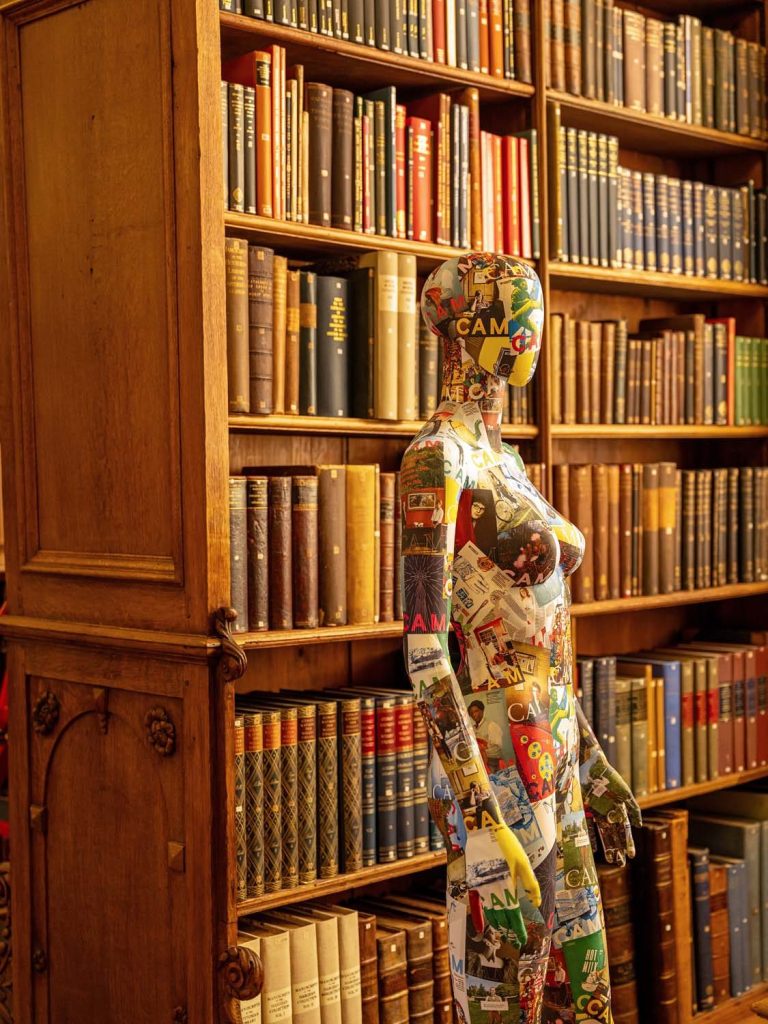
But she also loves to hang out with those who keep the University running. “Jeremy Taylor, the unflappable longest-serving head porter in Cambridge (Christ’s), liked to tell the story of taking a call from a night porter with a strong Italian accent. Jeremy said to the man: ‘For just a minute there, I thought you said one of the under-butlers had impaled his leg on a spike and was hanging upside down from the gate to the Master’s Lodge! The porter said: ‘I did.’”
It must be slightly terrifying being read by 200,000 of the most pedantic people on the planet. “Nonsense,” says CAM briskly. “As Oscar Wilde said, there is only one thing worse than being talked about, and that is being not talked about.”
And, she points out, the letters page is about so much more than just corrections or criticisms. “It’s where alumni can find each other, reminisce about old times, add their knowledge – and, sometimes, bring a glorious nugget of history to the surface.” The page has seen controversies, as when DeepMind founder Dr Demis Hassabis (Queens’ 1994) defended his chess record. “I was misquoted in the matter of being a chess grandmaster (CAM 41, Letters) but I did gain an ELO rating of 2,300 during the 1989 British championship, which at the time made me the highest-rated boy for my age in the world,” he wrote.
In 1999, Steve Young in Engineering told me about a device that would be permanently connected to the internet – a simple device small enough to slip into your pocket, with a screen but no keyboard: you would simply talk to it!
And it has seen furious denunciations: in 2006, Eric Johns (Fitzwilliam 1974) fulminated against the “feeble-minded” practice of highlighting quotes from an article in a larger font to draw attention. “One just reads the same thing twice,” he lamented. But oddities previously lost to history have also been recalled: Sir Edward Parkes (St John’s 1943) recalled doggerel celebrating the heads of chemistry, physics and engineering. “Professor Todd believes he’s God; Professor Mott knows he’s not; but Professor Baker is his own Maker.” “And, of course, it’s not just criticism,” insists CAM. “I think the nicest thing that anyone has ever said about me came from Simon Banks (King’s 1965) in Michaelmas 1995. He wrote that when he first started to receive the magazine, I had been boring and self-congratulatory. Now, however, I was interesting and self-congratulatory.”
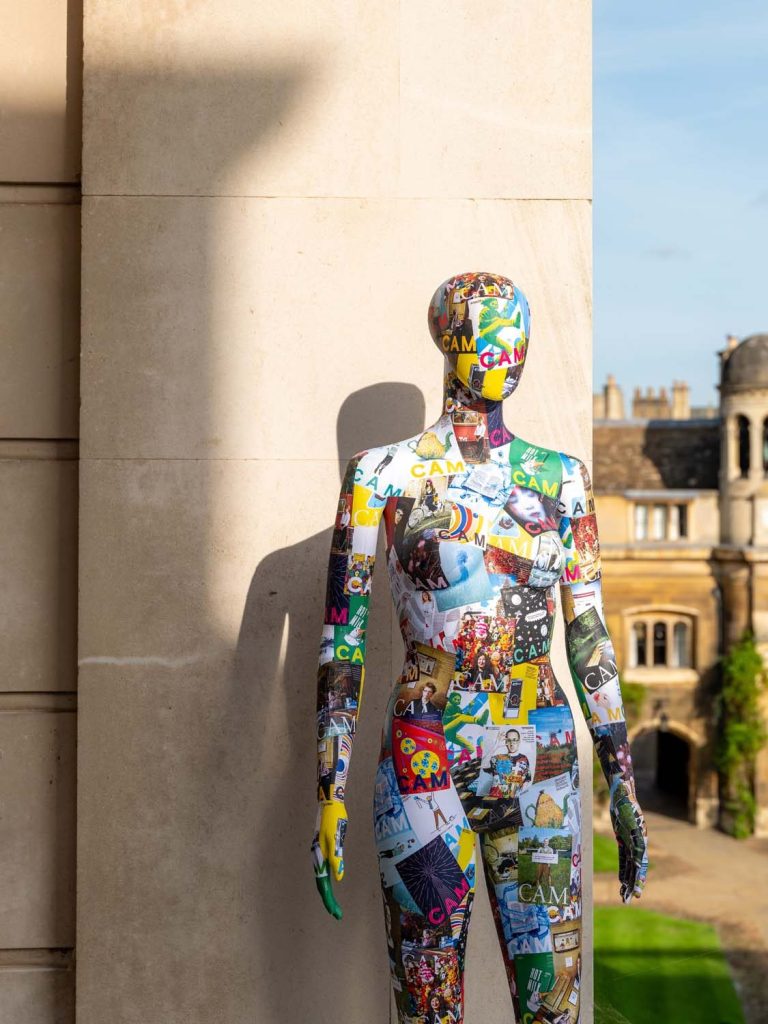
Chief among those interesting stories are those which might have seemed deeply strange at the time – but which are now part of everyday life. “In 1999, Emeritus Professor Steve Young (Jesus 1970), who then directed the Speech, Vision and Robotics Group in the Department of Engineering, told me about a device that would be permanently connected to the internet. He called it a ‘window on the world’ – a simple device small enough to slip into your pocket, so there will be a screen but no keyboard: you will simply talk to it. Imagine such a thing!
“And in 2003, Emeritus Professor Jean Bacon – the first woman to be appointed to a Lectureship in the Computer Laboratory – shared her work on something called the ‘active house’, where everything from the fridge to the light bulb would be provided with tiny sensors.” Though not everyone gets it right, of course. In 1999, legendary publisher Tom Rosenthal (Pembroke 1956) asked: “Who on earth would want to read a book on a screen?”
Quite a few people did, it turned out, and do a lot more besides. CAM reflects those changes, too. In 2006, something called Skype popped up, enabling students to talk to each other via computer. “With bated breath we now await the day when the lecture podcast becomes a reality; no more hungover scribbling, no more nodding off in the back pew,” wrote student Mary Bowers (Queens’ 2004). A year later, student Ned Beauman (Trinity 2003) laments the arrival of a new American website, Facebook.com. “Networking, Cambridge’s favourite sport, is being controlled by machines,” he sighed.
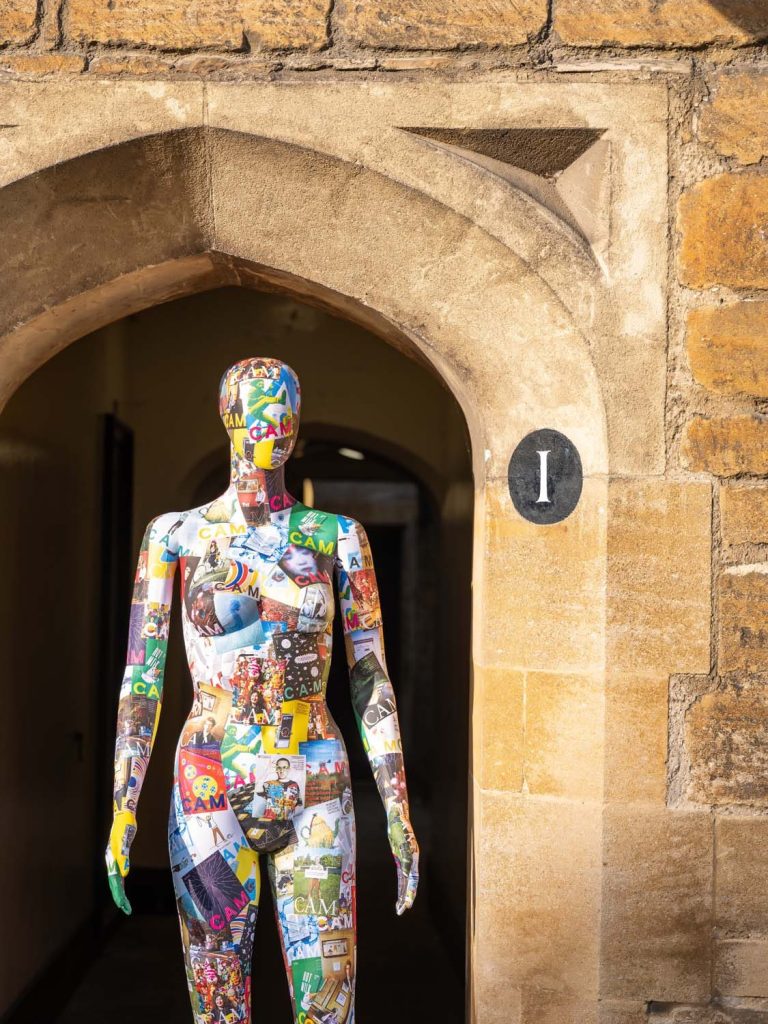
But CAM hasn’t just been ahead of her time when it comes to the digital revolution. “Right from the start, I was hearing about issues that are even more pertinent today: in my first few issues we covered conservation of the black rhino, global warming and energy resources, genetic research and environmental economics.” And she has tackled social issues head on. “I want to move with the times,” she says simply. “I was ruminating on the fact that I helped to celebrate 800 years of the University, and we have been here for 800 years because we have been open to change. In 2009, Professor Dame Alison Richard (Newnham 1966), then Vice-Chancellor, was already discussing the value of social diversity. In 2007, we celebrated Cambridge’s gay history: in that same issue, Professor Emerita Susan Golombok, then head of the Centre for Family Studies, discussed her groundbreaking research demonstrating that a partner’s sexual orientation makes no difference to their children’s wellbeing. In 2014, Professor Jens Scherpe discussed the consequences of legal frameworks that only permit binary gender identities. Just a few years later, I was proud to host a discussion around decolonising the curriculum, with academics including Professor Mónica Moreno Figueroa.”
Yet her interests stretch far beyond the academic, into the realms of – whisper it – trivia. “Trivia is a rather disparaging way of referring to my fascination with the eclectic, don’t you think?” she asks. “To hang out with laudanum drinkers in 17th-century Paris, to marvel at the flat-pack chalets beloved of 19th-century Turkish sultans, to sing the Cambridge Man’s Beer-Drinking Boat Race Song or abseil into Trinity under cover of darkness with the Night Climbers. To consider the evolutionary conundrums set by the existence of ladybirds, to investigate the connection between heavy metal music and Kant – these are the things that make life worth living.”
And the future? “Whatever form I exist in, my purpose will be the same – to entertain, to inform and to bring people together,” she says. Here’s to the next 100!
Do you love CAM Magazine? And do you find yourself reading it in some weird and wonderful places? Send us the photos of your collection or examples of how and where you enjoy our articles – the quirkier the better. Write to CAM at: cameditor@alumni.cam.ac.uk

